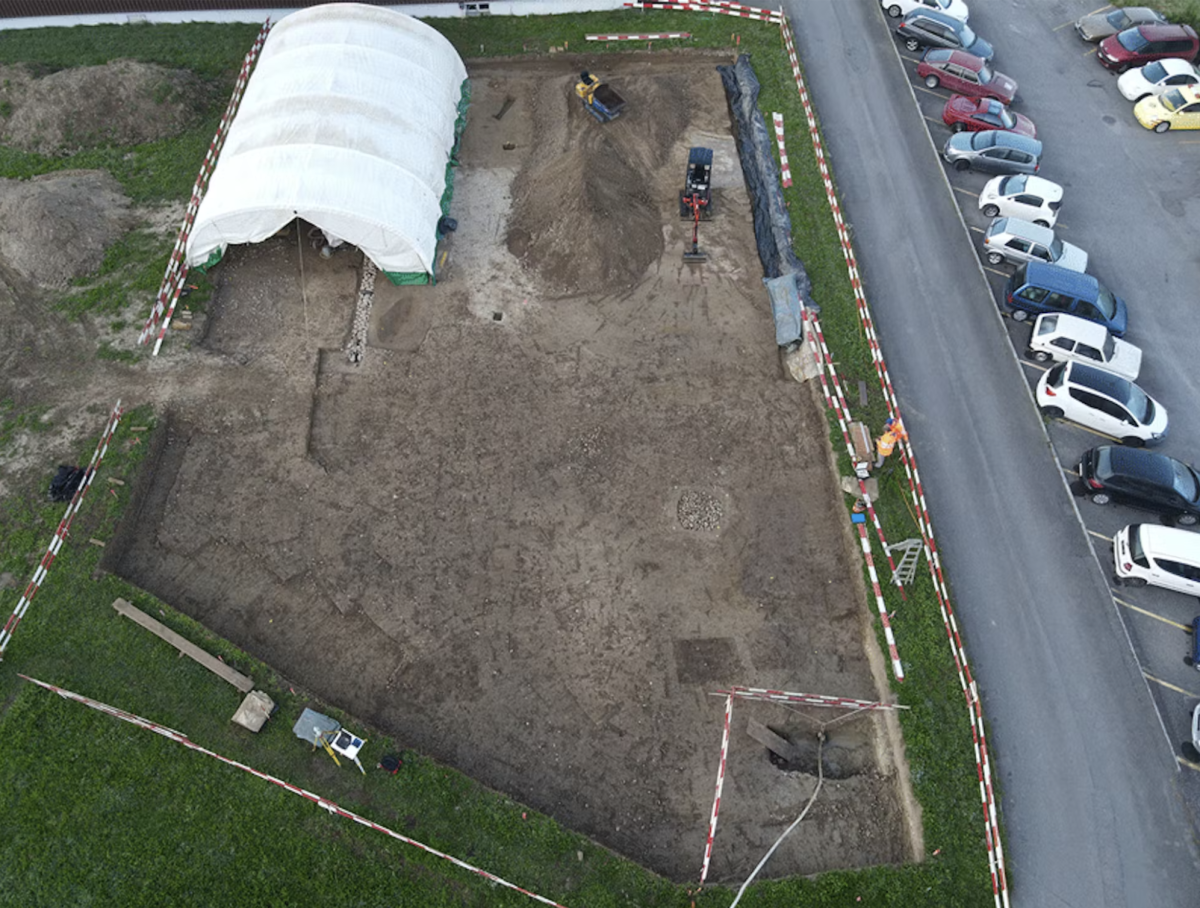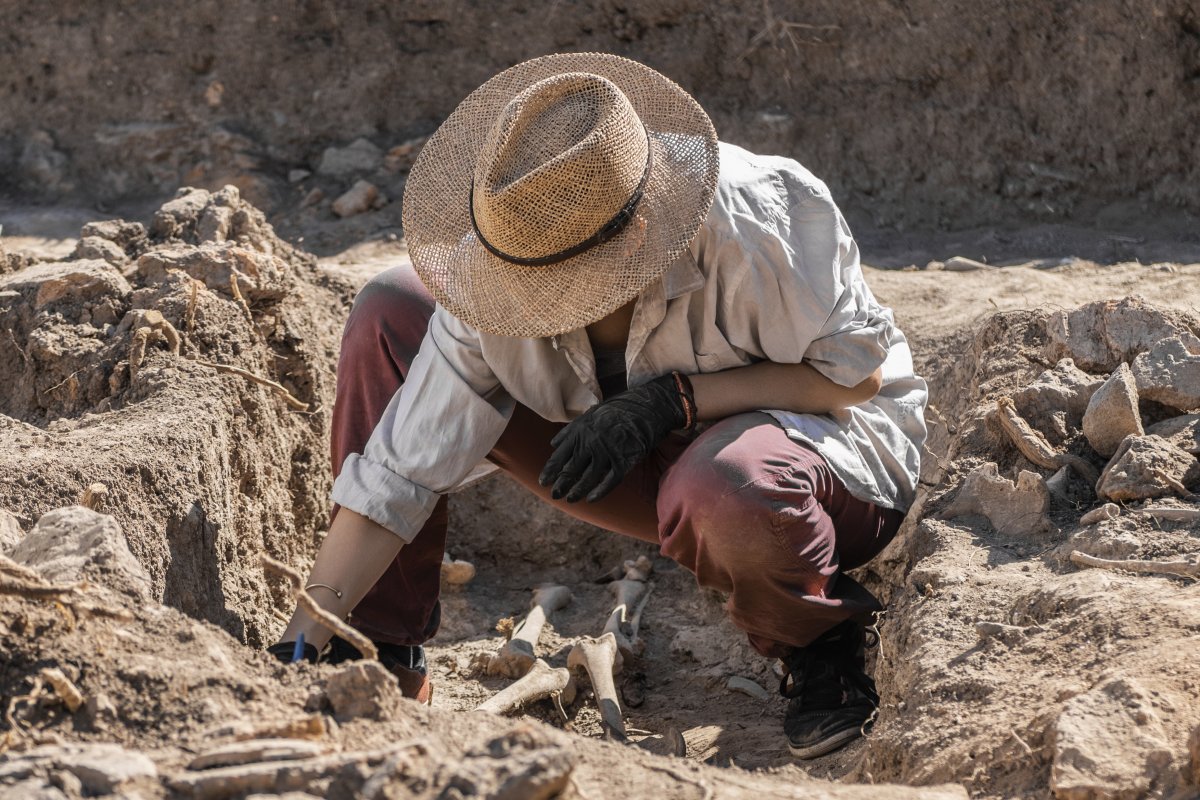Mystery surrounds the remains of a previously unknown prehistoric settlement next to a road that has been discovered by archaeologists.
The Bronze Age settlement, thought to date to around 3,200-3,500 years ago, was uncovered by the Schulgässli road in the municipality of Heimberg, Switzerland, the Archaeological Service of the Canton of Bern (ASCB) announced in a press release.
In advance of a construction project, the archaeological service carried out a rescue excavation at the site in the fall of 2023 in the expectation that the investigations would reveal an ancient brick workshop from the Roman era.
But no remains of such a workshop were found—instead, archaeologists unexpectedly identified traces of a Bronze Age settlement.

"What is exciting about the Heimberg site is that no settlement from the Middle Bronze Age was previously known at this location," Regine Stapfer, an archaeologist with the ASCB, told Newsweek.
The rescue excavations, which took place over the course of three months, revealed various traces of the prehistoric settlement, but several aspects of the site remain a mystery.
Among the structures that the researchers uncovered were ditches and several pits, some of which were filled to the brim with stones. These stones appear to have been shattered by significant heat, although researchers are not exactly sure what their original purpose was.
"It is not clear what these pits with the fragmented stones were used for," Stapfer said.
It is conceivable that the stones were heated in a fire and then placed in the pits to provide warmth for the Bronze Age community, according to the archaeologist. Another possible explanation is that they were used for cooking purposes. Similar pits have previously been found at other settlements dated to the Middle Bronze Age.
The archaeological service also identified other pits at the site that may be evidence of clay extraction. At the time, clay was an important raw material used for various purposes, such as to plaster the wicker walls of houses or to produce ceramics.
The excavations at the site revealed a relatively large quantity of prehistoric pottery. The style and decoration of the pottery indicates that the ceramic artifacts date to around 1500-1200 B.C.—providing an age for the settlement.
Only part of the Bronze Age settlement has been excavated so far, thus, its original size is not yet known, according to Stapfer.
The true identity of the Bronze Age people who once inhabited the site also remains unknown, although it is likely that they came from the region.
"We know of no burial ground for the settlement and therefore have no evidence of the people who inhabited the settlement," Stapfer said.

The discovery of the Heimberg settlement is one of a series of newly discovered settlements on dry ground—i.e., not on lakeshores—from the Bronze Age that have been found at various locations in the Canton of Bern in recent years.
Heimberg is situated beside the Aare River in the Swiss Plateau, which lies between the Jura and Alps mountains. The recently discovered Bronze Age sites demonstrate the importance of the Aare Valley as a place to live during this time period, and as a transport route between the Alps and the Swiss Plateau.
Do you have a tip on a science story that Newsweek should be covering? Do you have a question about archaeology? Let us know via science@newsweek.com.
Uncommon Knowledge
Newsweek is committed to challenging conventional wisdom and finding connections in the search for common ground.
Newsweek is committed to challenging conventional wisdom and finding connections in the search for common ground.
About the writer
Aristos is a Newsweek science reporter with the London, U.K., bureau. He reports on science and health topics, including; animal, ... Read more
To read how Newsweek uses AI as a newsroom tool, Click here.






